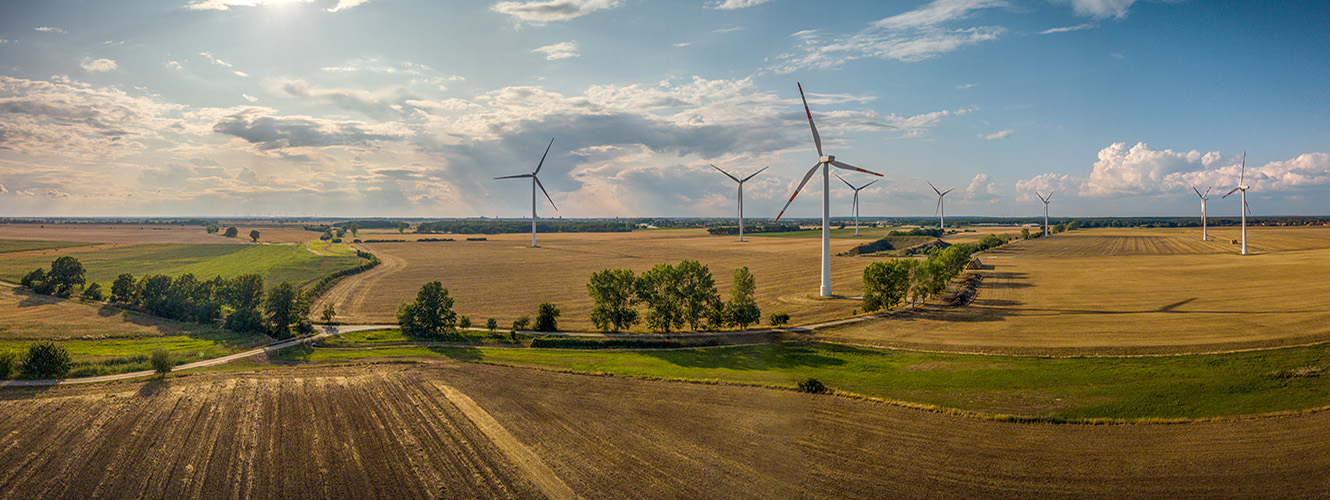
Rural diversification can take many forms. For our sustainable energy team, diversification is all about understanding our clients' current and future energy needs, how they use that energy and how we can help them futureproof their supply through the deployment of renewable technologies.
Farms have great potential for renewable energies such as wind turbines and solar photovoltaics (PV) because of the often-abundant land available and the fact that they can be very energy intensive, or otherwise contain key grid infrastructure necessary to transport electricity around the country.
Renewable energy allows business owners to reduce their reliance on the grid for electricity or mains gas, and with energy prices often fluctuating, the energy savings make the decision to install renewable energy even more attractive.
One of our clients, the Strawson family, who run Featherstone House Farm in Nottinghamshire, are a third-generation farming business specialising in cereal and vegetable production. Ordinarily this is an energy intensive process making renewable energy an appealing and viable option to explore to offset energy costs and support the business becoming more sustainable. We project managed the installation of a 900kW Enercon wind turbine in 2019 to provide electricity to the farm.
Renewable energy was identified as a solution to enable them to diversify away from traditional heating solutions such as oil, gas, and electricity and to cleaner, greener and sustainable energy.
Featherstone House Farm currently has roof-mounted and ground mounted solar PV panels as well as additional solar PV system and a ground source heat pump located on a neighbouring property.
We are currently working with the Strawson family to expand their solar capacity and to install a new technology for the farm – a hydrogen electrolyser: powered by solar energy. By combining PV panels with an electrolyser system, it is possible to convert electricity into ‘green’ hydrogen and store it for later use. The need for back-up battery storage is taken out of the equation. The hydrogen can be used on the farm as an alternative source of fuel and provides a zero-net carbon energy solution, from generation to storage and use. It can also be sold, with a growing market for sustainably produced hydrogen in the UK.
Click here to find out more about delivering net zero and about our renewable energy experts.





